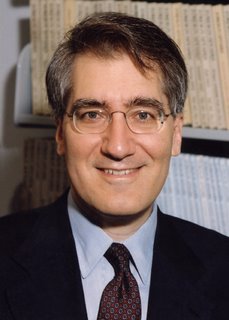 In the item “Are Jews Smarter?,” paragraph six opens with your point about bright eighth graders congratulating themselves on the “discovery” that the assertion of the Declaration of Independence “is not literally true.” “In ways important and unimportant, it is not the case that all are created equal. Call equality our ‘founding mythology,’ if you like, but it is crucial to the foundation of the American order . . . .” Well, I don’t think this is right. “All men are created equal” is literally true. The equality in basic worth and dignity of every member of the human family is not a myth. (Or if it is a myth, as Flannery O’Connor might have said, to hell with it.) Of course, as you say, not all men are equal in every respect. That’s obvious. Some are smarter than others, some are stronger, some are more creative, some are more virtuous, etc. But precisely in respect of the matter at issue in the Declaration—basic worth and dignity—all are, literally, created equal. That’s not a myth, not a noble lie, not a generalization admitting of exceptions. It is why it would be profoundly and inherently wrong (and not just imprudent or dangerous because it’s the sort of thing that could get out of hand) for someone to take the life of a single severely mentally retarded child in order to harvest organs to save the lives of Edward Witten (who, let’s imagine, need a heart transplant), Michael Jordan (who needs a liver), and Bela Fleck and the Dalai Lama (both of whom need kidneys). Of course, it is not that the retarded child is as smart as Witten, possesses the athletic prowess of Jordan, displays the musical genius of Fleck, or is as holy as the Dalai Lama (I’m guessing at the Dalai Lama’s holiness, by the way; maybe I should say Jimmy Carter here instead–just kidding! just kidding!!). Rather, it is that in basic worth and dignity the child really is the equal of these guys and everyone else. We don’t just pretend that he is equal in dignity because it helps to support the kind of public order and political regime we happen to favor, or because social life would become unmanageable otherwise. We believe he is equal–literally–and we assert it as a matter of moral truth.
In the item “Are Jews Smarter?,” paragraph six opens with your point about bright eighth graders congratulating themselves on the “discovery” that the assertion of the Declaration of Independence “is not literally true.” “In ways important and unimportant, it is not the case that all are created equal. Call equality our ‘founding mythology,’ if you like, but it is crucial to the foundation of the American order . . . .” Well, I don’t think this is right. “All men are created equal” is literally true. The equality in basic worth and dignity of every member of the human family is not a myth. (Or if it is a myth, as Flannery O’Connor might have said, to hell with it.) Of course, as you say, not all men are equal in every respect. That’s obvious. Some are smarter than others, some are stronger, some are more creative, some are more virtuous, etc. But precisely in respect of the matter at issue in the Declaration—basic worth and dignity—all are, literally, created equal. That’s not a myth, not a noble lie, not a generalization admitting of exceptions. It is why it would be profoundly and inherently wrong (and not just imprudent or dangerous because it’s the sort of thing that could get out of hand) for someone to take the life of a single severely mentally retarded child in order to harvest organs to save the lives of Edward Witten (who, let’s imagine, need a heart transplant), Michael Jordan (who needs a liver), and Bela Fleck and the Dalai Lama (both of whom need kidneys). Of course, it is not that the retarded child is as smart as Witten, possesses the athletic prowess of Jordan, displays the musical genius of Fleck, or is as holy as the Dalai Lama (I’m guessing at the Dalai Lama’s holiness, by the way; maybe I should say Jimmy Carter here instead–just kidding! just kidding!!). Rather, it is that in basic worth and dignity the child really is the equal of these guys and everyone else. We don’t just pretend that he is equal in dignity because it helps to support the kind of public order and political regime we happen to favor, or because social life would become unmanageable otherwise. We believe he is equal–literally–and we assert it as a matter of moral truth.Robert P. George
http://www.firstthings.com/
No comments:
Post a Comment